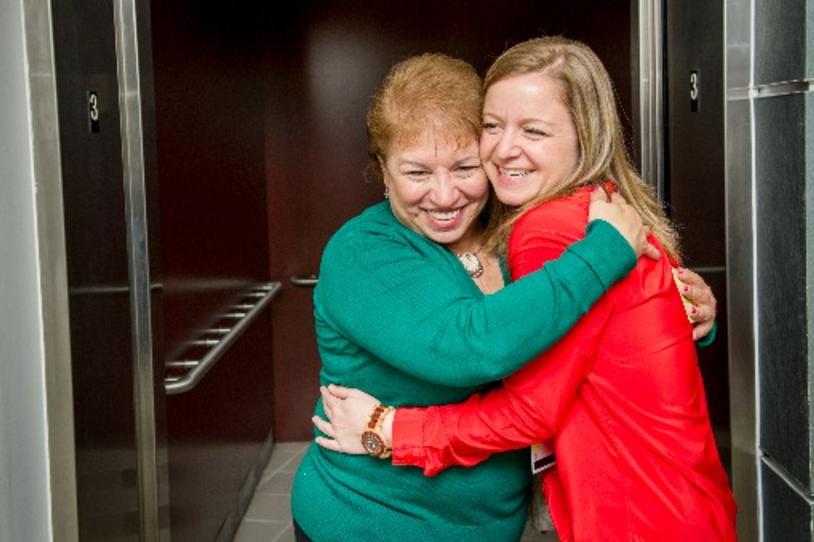
Kate Kelsall is president of DBS Voices of the Rockies and volunteers as a DBS advocate with individuals and their families. She was diagnosed with PD in 1996 and had DBS in 2005. Kate blogs at Shake, Rattle and Roll.
It was a warm day in May 2005 in Sacramento, I felt as though I was the only person in the world getting DBS (deep brain stimulation). My husband, Tom felt like he was the only spouse in the world of someone getting DBS.
Tom and I each kept our worries about DBS to ourselves—how would I function after DBS; would I survive the surgery.
Back in 1996 on the day after I was diagnosed with Parkinson’s, Tom and I went to a local PD support group whose members were identified as “young onset.” At the time, I didn’t know the difference between the terms “young onset” and “recently diagnosed” and I thought they were one and the same. This young onset group had many people that were in their70s and 80s and had advanced Parkinson’s, I was 46 years old and was diagnosed only the day before. Members arrived in wheelchairs, using walkers, and one individual even arrived by ambulance. It was a shock to see a possible glimpse of my future with Parkinson’s. I never attended another PD support group for the next ten years from 1996 to 2006 until Valerie Graham and I founded the DBS support group, the Bionic Brigade in 2006.
We both learned that we were not alone and that support groups aren’t one size fits all.
I learned the questions to ask.
During the DBS process, I realized that I needed to meet with other persons who already had DBS. I saw plenty of DBS medical folks during the evaluation process, but no one who had the experience of being a patient who had DBS.
I learned everything I could about DBS.
Some group members like to know every detail about the DBS experience, while some feel intense anxiety with too many details.
I learned to speak up.
I love the saying “A closed mouth doesn’t get fed.” I needed to open my mouth and ask my questions. If I have a question about DBS, chances are there are a number of other members who have the same question. Even if you I’m not the kind of person who enjoys speaking up, it’s important to share my DBS experience in the group so that others can benefit from my experience and knowledge.
I learned to be respectful.
I have the utmost respect for people struggling with PD and DBS and their care partners, overwhelmed by the doctors’ appointments, keeping up with the programming sessions as well as the rehab sessions in speech, physical and occupational therapy. Those with PD don’t want to be pitied or to be seen as suffering, but they want to be treated like ordinary people who are making their way in the world and living the best they can.The Bionic Brigade continues to be an excellent resource for information about DBS, provides the opportunity to share DBS experiences, explore fears about DBS and make some friends along the way. The group with its co-leaders, Donna Miller and myself (both with PD) and its enthusiastic facilitator, Cheryl Siefert (who does not have PD) have shown that our lives are not over with DBS. In fact, in some ways we have created more satisfying and purposeful lives with DBS. The group has provided education and support, and we have come to the conclusion that we are not alone in our quest for the cure. The Bionic Brigade has given us inspiration and hope for the future.